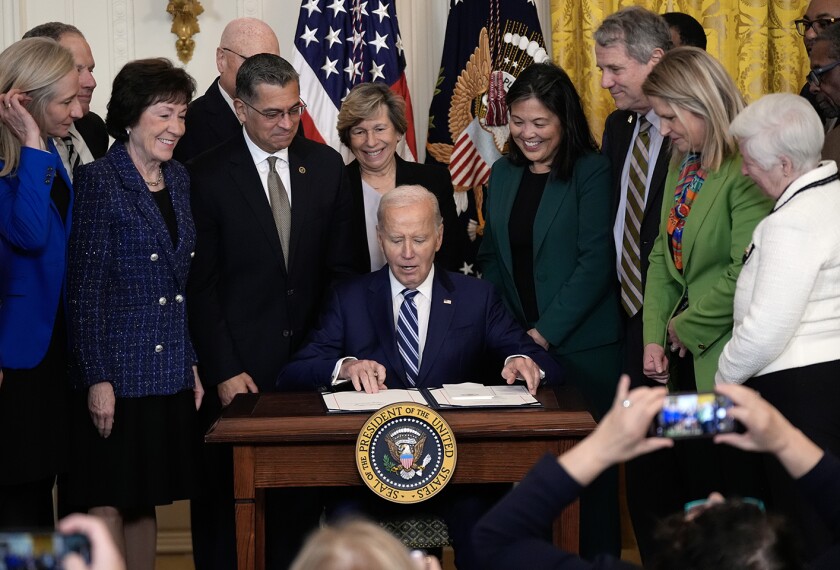Principals are good at identifying the most and least effective teachers in their schools, a new study concludes, and should be allowed a bigger say in decisions about teachers’ pay and retention.
The article “When Principals Rate Teachers” is available in the Spring 2006 issue of Education Next.
The study is based on data collected from 13 elementary school principals in an unidentified midsize school district. The results are discussed in an article in the Spring 2006 issue of the journal Education Next, which is published by the Hoover Institution at Stanford University.
The participating principals evaluated their teachers’ overall effectiveness, and also rated them on specific characteristics, such as dedication and work ethic, classroom management, and parents’ satisfaction with their work.
The authors, Brian A. Jacob, an assistant professor of public policy at the John F. Kennedy School of Government at Harvard University, and Lars Lefgren, an assistant professor of economics at Brigham Young University in Provo, Utah, then compared the evaluations with the differences in student test scores that could be attributed to specific teachers. All responses were kept confidential from both the teachers involved and other school administrators.
Principals consistently identified those teachers with both the largest and smallest gains on their students’ tests, or the top and bottom 10 percent to 20 percent of teachers, the authors found. However, they were less able to distinguish among teachers in the middle 60 percent to 80 percent of the sample, the researchers found.
Those findings suggest, they write in the article, that “merit-pay programs that reward or sanction teachers should be based on evaluations by principals and should be focused on the highest- and lowest-performing teachers.”
In addition, they write, “our results suggest that student achievement (as measured by standardized-test scores) would probably improve more under a system based on principals’ assessments than in a system where compensation is based solely on education and experience.”
‘Divorced From Value’
Under procedures in place in most school districts, “we have a compensation system that is divorced from the value the teacher brings into the classroom,” Mr. Lefgren said in an interview last week.
Though pay in most districts is a function of teachers’ education and experience, both authors argue that research has shown that after the first years of teaching, experience has little or no impact on a teacher’s effectiveness.
But calculating teachers’ pay only by student test scores and teachers’ education and experience ignores factors such as student enjoyment and parent requests for specific teachers, which, Mr. Lefgren argues, are also signs of high-quality teaching.
For example, as a part of the study not published in the article, he and Mr. Jacob analyzed parent requests for specific teachers. They found that a principal’s overall rating of a teacher was a substantially better predictor of future parent requests for that teacher than the teacher’s education, experience, or student test scores.
“If you have a broader definition of educational quality, then principals can assess that better,” Mr. Lefgren said.
Vincent L. Ferrandino, the executive director of the Alexandria, Va.-based National Association of Elementary School Principals, was not surprised by the study’s findings.
“We think that a very important part of a principal’s role is to evaluate teachers,” he said.
Bill Raabe, the director of collective bargaining and member advocacy for the National Education Association, agreed that teacher evaluation is an important aspect of being a principal, and said that he was pleased that “at least in this one school district, principals can be fairly good judges of teachers.”
But, he said, “the idea that [the evaluations] should then be used for pay makes no sense.”
The assessments should be used to determine ways of improving teachers’ performance and instruction, rather than for determining their pay, he said.
Rob Weil, the deputy director of education issues for the American Federation of Teachers, echoed Mr. Raabe.
“Professional compensation [for teachers] requires much more than just going after the principal’s gut feeling,” he said.




